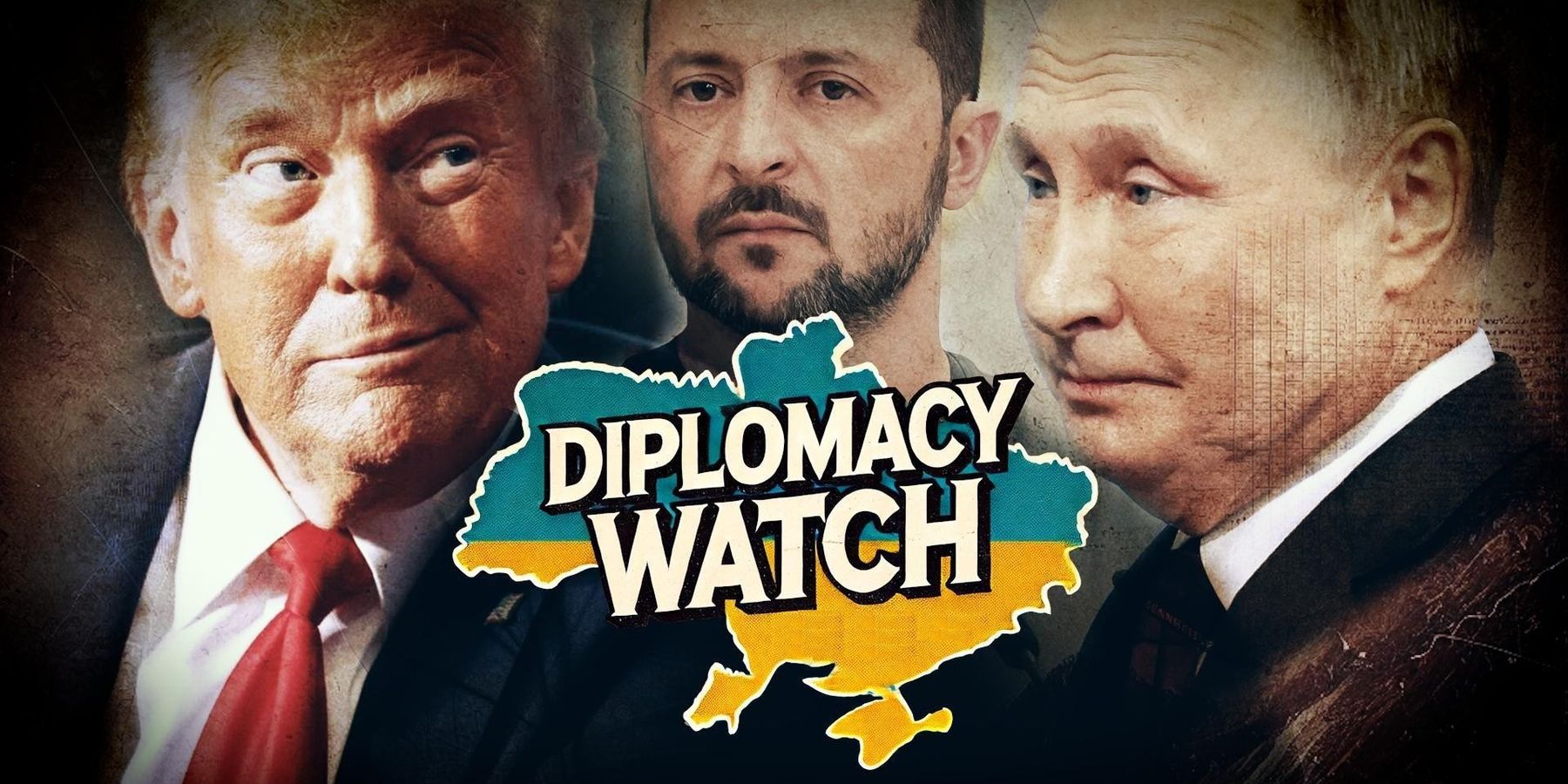Without Americans’ help, the European “coalition of the willing” is striving to assist Ukraine — to mixed reviews.
Europeans met on Thursday to hash out how European peacekeepers could be sent to Ukraine to enforce an eventual peace deal between Ukraine and Russia. But only Britain, France, Sweden, Denmark and Australia have said they would actually put boots on the ground.
And while Kaja Kallas, EU High Representative for Foreign Affairs and Security Policy, urged the EU to mount another five billion euros in aid to Ukraine on Thursday, the proposed funds are significantly less than the 40 billion euro aid package floated earlier.
Meanwhile, other diplomatic affairs are progressing quickly. Namely, Trump, Putin, and Zelensky all agreed to a 30 day partial ceasefire that would limit strikes on energy and civilian infrastructure.
Trump and Zelensky had spoken over the phone on Wednesday, where Zelensky agreed to the partial ceasefire proposal.
“I had a positive, very substantive, and frank conversation with President of the United States Donald Trump @POTUS…We agreed that Ukraine and the United States should continue working together to achieve a real end to the war and lasting peace,” Zelensky said of the call. “We believe that together with America, with President Trump, and under American leadership, lasting peace can be achieved this year.”
“We are very much on track,” Trump said, sharing Zelensky’s positive view of the conversation.
In his own call with Trump Tuesday, Putin had stopped short of halting the use of missile, drone and bomb attacks against Ukraine altogether for 30 days, as initially suggested by Trump.
While a major development, it’s not clear when the partial ceasefire will go into effect. In the meantime, Ukraine attacked an air base deep within Russia Thursday overnight, and Russia was accused of drone-striking two Ukrainian hospitals after ceasefire-related talks. “Everything will continue to fly,” Mr. Zelensky explained, until “there is an appropriate document” negotiating the partial ceasefire’s terms.
Europeans, meanwhile, are skeptical.
“Attacks on civilian infrastructure in the first night after this supposedly pivotal and great phone call have not abated,” German defense minister Boris Pistorius told German broadcaster ZDF. “Putin is playing a game here and I’m sure that the American president won’t be able to sit and watch for much longer.”
“It is clear that Russia does not really want to make any kind of concessions,” Kaja Kallas said, similarly downplaying the deal.
In contrast, other observers felt the call was a positive step toward peace.
“If the diplomatic overtures of the past several months were seen by some as opaque, then today’s phone call between President Trump and Russian President Vladimir Putin cannot be taken as anything but proof positive that the rubber has hit the road on serious, substantive U.S.-Russia negotiations over a Ukraine peace deal,” Quincy Institute Research Fellow Mark Episkopos wrote for RS. “The energy-infrastructure truce represents substantial progress, negotiated under what is militarily a difficult situation for Ukraine, in slowly shifting from war onto a de-escalatory trajectory.”
In other Ukraine War news this week:
According to AP, Italian PM Giorgia Meloni has ruled out sending Italian troops to Ukraine. "We believe that the dispatch of European troops proposed in a draft by Britain and France is a very complex, risky and ineffective option,'' she explained, referencing previously floated plans for a mainly European peacekeeping force in Ukraine. She said she supported Trump’s ongoing efforts to broker a ceasefire deal between Russia and Ukraine.
Ukraine and Russia successfully conducted a prisoner swap on March 19, according to Al Jazeera, where Moscow returned 175 soldiers and 22 wounded prisoners of war. Ukraine returned 175 Russian soldiers in turn.
Meanwhile, Ukraine is mounting an offensive on the Russian city Belgorod, which borders Ukraine. At least one soldier has been killed in related shelling, according to Reuters, and the governor of the Belgorod oblast admitted the situation is “difficult.”
According to the Guardian, Trump told Zelensky that the U.S. could take ownership of Ukrainian nuclear power plants through a ceasefire agreement. “He said that the United States could be very helpful in running those plants with its electricity and utility expertise,” White House Press Secretary Karoline Leavitt explained in a press conference Wednesday. “American ownership of those plants would be the best protection for that infrastructure and support for Ukrainian energy infrastructure,” Leavitt said.
Zelensky, however, has said that the talks focused only on the Zaporizhzhia power plant, currently occupied by Russia, and that they were about recovering it, rather than the U.S. owning it. “I told him [Trump]: ‘Yes, if it is possible to modernize, invest money, etc., we are ready to discuss it with you.’ But we spoke exclusively about one station that is under temporary occupation by Russia,” he had said, according to the Hill.
From State Department Press Briefing on March 19:
“We’ve been in this really fast environment where everything’s happening fast. The good news is, so is peace. We’ve never been closer,” State Department Spokesperson Tammy Bruce said, summing up the status of Ukraine war diplomatic talks, including the Trump-Putin call. She said negotiations towards a “maritime ceasefire in the Black Sea,” or even a “full ceasefire and permanent peace,” may occur in the near future.
“Special Envoy [Steve] Witkoff met with Putin last week. Last weekend Secretary [Marco] Rubio spoke with Foreign Minister [Sergey] Lavrov. And, of course, Secretary Rubio and National Security Advisor [Mike] Waltz met with the Ukrainian delegation in Jeddah. Negotiations will continue in Saudi Arabia in the coming days," Bruce explained.
“We’ve been in this really fast environment where everything’s happening fast. The good news is, so is peace. We’ve never been closer,” State Department Spokesperson Tammy Bruce summed up the status of Ukraine war diplomatic talks.
She also referenced talks likely set to begin Sunday or next week in Saudi Arabia.
















